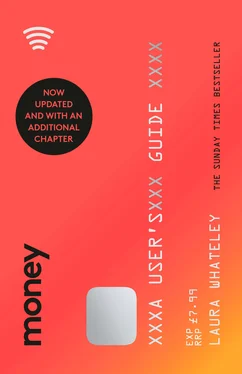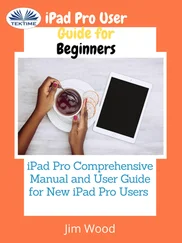If you have moved from abroad, bring a copy of your credit record from the main agency in your home country to the UK, then contact Experian, Equifax and Transunion and ask them to put a note on your file that you are willing to provide a copy of your credit history. Monese offers bank accounts to people who have no proof of address, maybe because they have no credit record in the UK and therefore their name is not on a utility bill.
You have got a deposit and can afford a mortgage! So what is the process of buying a house?
You spot a house you like advertised with an estate agent. You work out whether you can afford it and stamp duty based on whether you can get a mortgage. You can at this stage get a ‘mortgage in principle’, which is a non-binding agreement stating how much, based on your income, outgoings and credit score, a bank will lend you. If all looks good, you put in an offer for the property, which is hopefully accepted by the seller. You then appoint a property lawyer to start what is called the conveyancing process. You find the mortgage you want – it doesn’t have to be with the same bank that gave you a mortgage in principle – and apply for it for real.
Once the sellers have accepted your offer there is still no guarantee that they will definitely sell to you, just a ‘gentleman’s agreement’. There is a chance that you could get gazumped. That’s where another seller swoops in with a higher offer, and a greedy seller dumps you for the new bidders. Gazundering is where you, the buyer, lower your offer just before exchange of contracts. There is nothing other than your conscience, and the risk of pissing off the seller, who may pull out, to stop you doing this, but all the same, better not to – bad karma.
Cross your fingers you do not get gazumped, and insist that the person you are buying from takes down the online or estate-agent advert for their home (the estate agent probably will not do this unless you force them to). In Scotland an offer being accepted is legally binding, sometimes subject to a mortgage being approved, so you are unlikely to be gazumped, or pull out once you have put your offer in.
Your bank will carry out affordability and credit-score checks and then, with a mortgage-valuation survey, on the property you want to buy. This survey is not the same as a building survey, which checks whether the house is in good condition. You need to set this up yourself.
Meanwhile your solicitor will be carrying out checks too, on things like whether your property is on a floodplain. You have to pay for these. Press your solicitor for these to be completed quickly.
When you have received your mortgage offer and your solicitor is ready you can exchange contracts, a process carried out between your own and the seller’s solicitor. At this stage you normally need to pay 10 per cent – sometimes, if you negotiate, 5 per cent – of the price of the property you are buying to your solicitor, who passes it on to the seller’s solicitor. Make sure you have this money ready to be transferred out of your bank account; some banks will require a few days’ notice.
Be super-careful about the accuracy of your solicitor’s bank details. There is a common fraud where solicitors’ email accounts are hacked by a fraudster who sends out an email to a buyer stating that the solicitor’s bank details have changed, or adding in false sort codes and account numbers. If in any doubt, call your solicitor to check again where you send the money. Once you’ve clicked send it’s gone, and you cannot get it back if you send it to the wrong place. I’ve seen this happen several times, and it is heartbreaking.
You also need, at this stage, to arrange buildings insurance, legally required as part of receiving a mortgage.
You agree a day of completion, on which you arrange to send over the rest of your home deposit, plus any fees owed to your solicitor, as well as stamp duty. Your solicitor will receive cash from your mortgage company and arrange to send this to the seller’s solicitor on completion day, at which point you receive the keys for your new home. Woohoo!
The many other costs of buying a house
When working out whether you can afford to buy you need to budget for all the many other unexpected costs that crop up along the way: stamp duty, legal costs, local authority searches, survey costs, mortgage arrangement fees, mortgage broker fees, buildings insurance, removal vans, and, only if you are selling too, estate-agency fees.
Need-to-knows: Stamp duty
This is the biggest cost of moving, a tax you pay on any property you buy in the UK. The tax is based on the price of the property you are buying, and is staggered in thresholds. For example, from April 2021 you pay 2 per cent of a property’s value on properties priced between £125,001 and £250,000; 5 per cent on properties worth between £250,001 and £925,000; 10 per cent on properties worth £925,001 to £1.5 million.
First-time buyers are exempt from paying stamp duty on any home worth below £300,000. If the property you want to buy is worth more than £300,000 but less than £500,000 you pay 5 per cent of any proportion between the two. During 2020, and up to April 2021, there is a temporarily more generous stamp duty holiday to help the housing market cope with the coronavirus pandemic. The first £500,000 of a property is exempt from the tax altogether. If you are buying before April 2021, check out the stamp duty calculator at gov.ukto see how much you’ll pay.
If you are buying with another person you both have to be first-time buyers, otherwise the first-time buyer’s stamp duty holiday (after April 2021) does not count. There is an exception if only one person’s name is on the deeds, and that person is a first-time buyer, but only if you are not married. You are not a first-time buyer if you have already owned a property in another country, or if you have inherited a property. You also only get the exemption if you are buying a home to live in. It does not apply to buy to let, even if you have never bought a property before.
You need a property solicitor or conveyancer to help you buy a house. Expect to pay fees in the region of £1,000 to £1,500. Having a solicitor who cracks on with the work and will answer your calls promptly will save you a lot of aggro, so a personal recommendation is probably the best way to find one. Failing that, The Law Society website’s ‘find a solicitor’ section lists conveyancers. You do not need to use a local solicitor. You could find a more affordable, reliable one from back home, even if you are buying in London, for example.
You will also need to pay your solicitor certain fees for Land Registry, which charges for changing the ownership of a home into your name, and local authority searches. Budget an additional £300 or so.
Finding a solicitor before you put in a house offer makes you look organized and committed and can help save precious time when an offer has been accepted and you want to exchange as soon as possible.
When you get a mortgage your bank will want to check that the property you want to buy actually exists, as well as that it is worth the price you are going to pay for it: the bank does not want to lose money if it has to repossess. It will therefore carry out a mortgage-valuation survey, which you will probably have to pay for: a few hundred pounds. Do not make the frequently made mistake of relying on this as some kind of comprehensive survey of whether or not the house you are buying may fall down.
You need another building survey, by a qualified surveyor, or the less extensive homebuyer’s survey to check for damp or rot or Japanese knotweed or a ceiling that is about to collapse. You are not obliged to have one, but you may regret it if you do not and there are extensive problems in your new home. Some are considered not worth the paper they are written on, however, so put some research into what kind of survey to go for, and whether it is worth it for the type of property you are buying. Expect to pay from £300 to well over £1,000, according to the HomeOwners Alliance. The Royal Institution of Chartered Surveyors site ( RICS.org) is a good starting point.
Читать дальше












